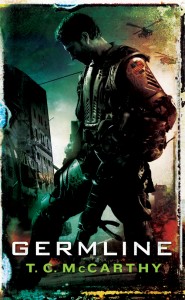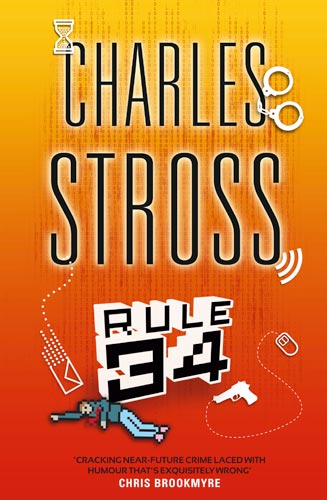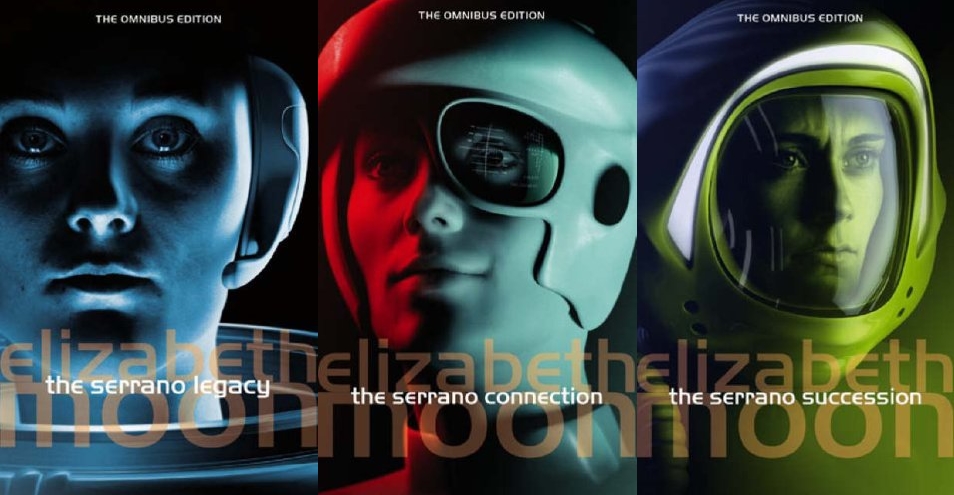 On Friday night I could barely contain my excitement. I – along with thousands upon thousands of people across the country – had tickets to PROMETHEUS, undoubtedly the most talked-about science fiction film release of the year so far. And where better to see it, but the glorious Empire cinema on Leicester Square, in 3D.
On Friday night I could barely contain my excitement. I – along with thousands upon thousands of people across the country – had tickets to PROMETHEUS, undoubtedly the most talked-about science fiction film release of the year so far. And where better to see it, but the glorious Empire cinema on Leicester Square, in 3D.
The air was filled with anticipation as we all crammed through the doors and were handed our 3D specs. And then when the opening scenes began, with sweeping views across spectacular landscapes on Earth, enhanced by the 3D effects (probably the most unobtrusive and therefore effective I’ve seen in a movie so far) – we knew that this was going to be something big. And then, when the shadow of a city-sized spaceship began to darken the landscape, it began to feel truly epic.
What bigger a subject is there than first contact with alien life?
 I couldn’t help but constantly draw parallels with David Brin‘s new novel EXISTENCE, and not just because of the 3D effect (with our first edition featuring a very cool 3D cover). But because at the heart of EXISTENCE is the discovery of an alien artefact floating in Earth’s orbit, picked up by a galactic garbage trawler. It appears to be a message in a bottle, an invitation to “join us” from another sentient species out in the vastness of the universe. At the same time, another artefact is found in the ruins of a sunken beach-front mansion, which warns humanity away from making contact with this other life form.
I couldn’t help but constantly draw parallels with David Brin‘s new novel EXISTENCE, and not just because of the 3D effect (with our first edition featuring a very cool 3D cover). But because at the heart of EXISTENCE is the discovery of an alien artefact floating in Earth’s orbit, picked up by a galactic garbage trawler. It appears to be a message in a bottle, an invitation to “join us” from another sentient species out in the vastness of the universe. At the same time, another artefact is found in the ruins of a sunken beach-front mansion, which warns humanity away from making contact with this other life form.
This highlights the question which forever prods at us and teases us. It’s the dilemma at the very centre of both PROMETHEUS and EXISTENCE: would making contact with an alien life form be a good idea? Would these (presumably more intelligent) beings have an inherent desire to help humanity, to set us straight, sort out our squabbling, or offer us a shiny new planet when we’ve trashed our own beyond repair? Or would they in fact just try to eat our faces, use us as lovely host organisms and generally be bad news for the continuing future of mankind?
Now we all know that PROMETHEUS is a prequel to the other ALIEN films, so could safely assume that these otherwordly creatures were not going to be our BFFs. But what a thrilling experience to see the journey up until that point: where we hope to find out that mankind can have a meaningful and significant place within the universe by uniting with another sentient species. And then how awesomely epic to see those hopes dashed in spectacular, breathtaking and violently dramatic ways?
I’m glad to say that my expectations for PROMETHEUS were certainly met. The special effects are magnificent – the kind where you have to pinch yourself to remember that this isn’t real footage, and that massive organic-looking Titus of an alien spaceship did not actually just rise from behind them yonder hills. And even if it sometimes seems that the need for great effects can take over from the need for flawless acting, the performance of Michael Fassbender more than made up for it, as the eerie robot David. The pace of the film was also a real strong point. There wasn’t a single moment when my concentration lapsed and the plot was sturdy enough (although not as strong as the original ALIEN movies). Overall it was a totally enthralling, enjoyable experience.
If I was going to have one small criticism, it would be that the characters seemed a tad nonplussed when they finally discover solid proof of alien life. Whereas the beauty of EXISTENCE is that it really focuses on the question of how proof of alien life would affect mankind. What would the initial evidence of alien life mean for all different people in different walks of life? Would the politician try to veil the truth from the general public? Would the journalist become set on letting the public know what they’re in for? Would the anti-technology prophet claim that the only way to survive would be to end democracy? What would it mean for each of us? How would the world react? Is this the end, or a new beginning?
I won’t give any spoilers, but what happens all feels frighteningly, awe-inspiringly real. EXISTENCE is set a few decades in the future, but who knows if the day when we’ll actually be answering some of these questions is closer than we think? Let’s see if 2012 might really be as significant a year as the Mayans thought…
PROMETHEUS is at cinemas nationwide now, and EXISTENCE (UK | ANZ) will be released on 21st June 2012 with a limited edition 3D cover.





 On Friday night I could barely contain my excitement. I – along with thousands upon thousands of people across the country – had tickets to
On Friday night I could barely contain my excitement. I – along with thousands upon thousands of people across the country – had tickets to 


